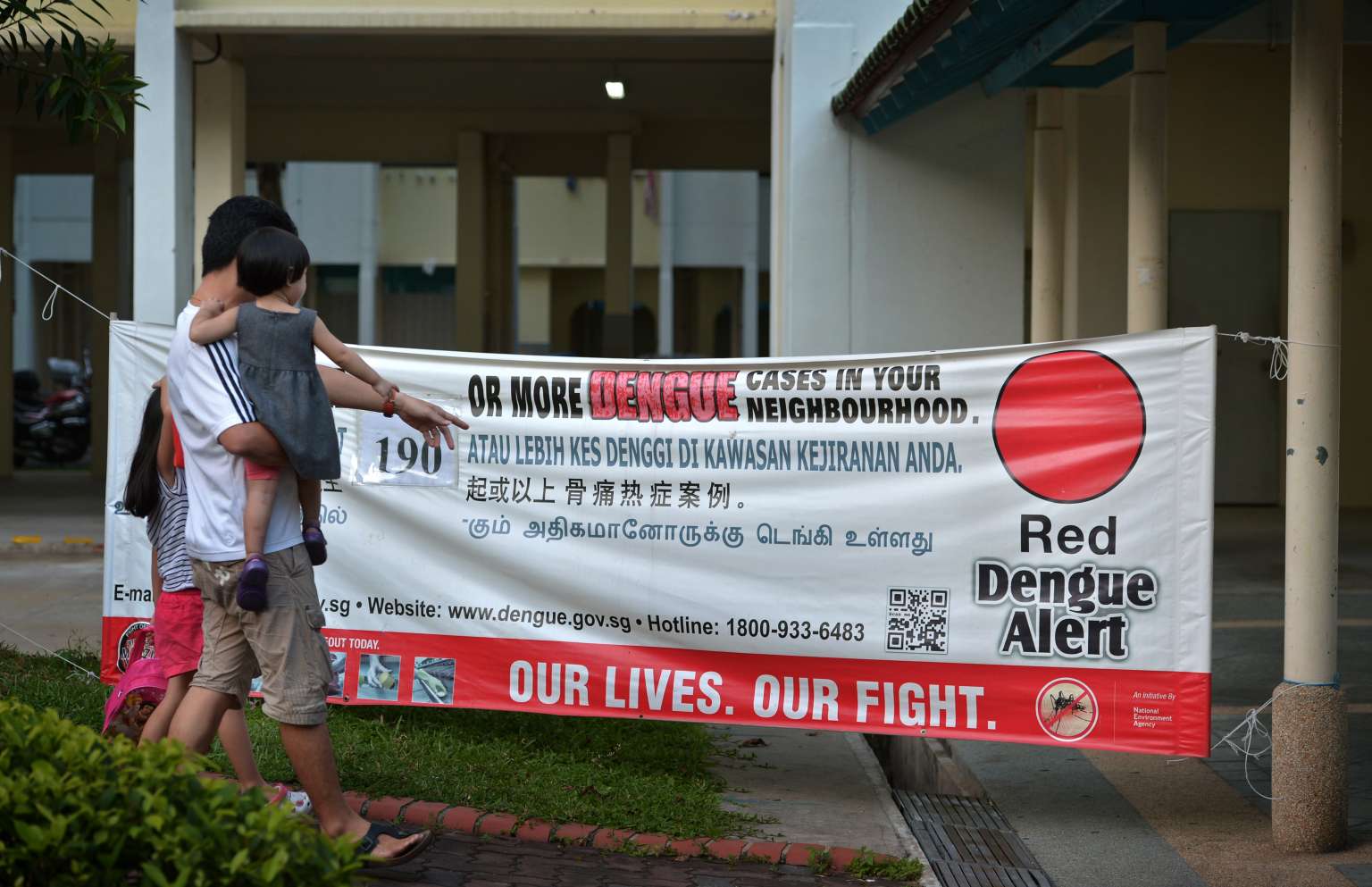Fears of record dengue cases after 40% spike last week
Sign up now: Get ST's newsletters delivered to your inbox

A banner showing the number of dengue cases at hot spots in Tampines Avenue 4.
ST PHOTO: KUA CHEE SIONG
The number of dengue cases spiked by more than 40 per cent last week, raising fears that the virus could reach record levels this year.
After three consecutive weeks of decline, there were 594 reported cases between Feb 14 and 20, 175 more than in the previous week.
The National Environment Agency (NEA), which released the figures yesterday, stressed the need for vigilance, and urged the public to "continue taking action to stem the transmission of dengue".
Last week, the NEA warned that the total number of cases this year could surpass 30,000, exceeding the record 22,170 cases in 2013, as a result of warmer temperatures due to the El Nino weather phenomenon and a switch in the predominant virus serotype to DEN-2 from DEN-1.
El Nino, which causes warmer- than-usual temperatures, promotes faster breeding and shorter incubation times for the dengue virus, while the switch in serotype is historically followed by a spike in dengue cases due to lower immunity to the new strain.
Dengue clusters often die out spontaneously, according to Professor Annelies Wilder-Smith of the Lee Kong Chian School of Medicine at Nanyang Technological University. "The reason is that a certain level of herd immunity builds up in an outbreak-affected community."
But doing nothing, to allow for the development of the herd immunity, risks the spread of the virus to other areas, resulting in the formation of new clusters, according to Associate Professor Ooi Eng Eong, deputy director of the Emerging Infectious Diseases Programme at the Duke-NUS Medical School.
However, the NEA said that with good control of the virus, fewer people get infected.
The NEA will step up efforts to eradicate dengue, including the launch of its Mozzie Wipeout Campaign on Sunday, which teaches residents how to prevent mosquito breeding in their homes.
Meanwhile, the country's largest active dengue cluster in Tampines - which has seen 280 cases at Tampines avenues 1, 3, 4, 5 and 8 since last November - has been declared "closed" by the NEA.
A cluster is closed when it has fewer than two cases over two weeks.


